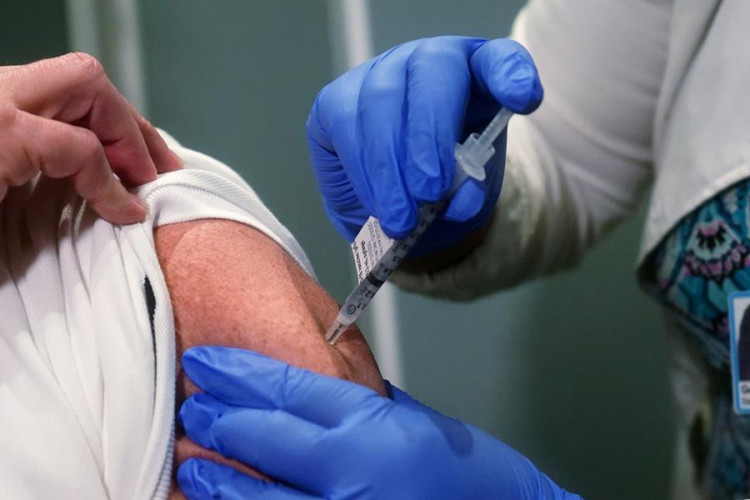Pfizer Chief Executive Officer Albert Bourla said the U.S. should return to normal within a year as the pharmaceutical company's COVID-19 booster shot was approved for the elderly and other higher risk communities.
Bourla said he believed life would normalize within the year even though new variants of the virus are likely to continue to emerge around the world.
"I agree that within a year, I think we'll be able to come back to normal life," Bourla said, adding he does not think that this means "variants will not continue coming."
Bourla pointed out that he doesn't think this means people should be able to go on with their lives without having vaccinations. "But that, again, remains to be seen."
The Pfizer CEO stressed that most likely, people will be required to continue receiving booster shots yearly, similar to how people are administered with the flu vaccine each year to protect against any variant of the influenza virus that year.
Bourla's comments echo remarks made by Moderna chief executive Stéphane Bancel last week. Bancel predicted the global health crisis would be over "in a year."
Pfizer is the only pharmaceutical firm of the three that were authorized by the Food and Drug Administration for COVID-19 vaccines in the U.S. that has also been approved for a booster shot.
The boosters are only permitted by the FDA to be distributed to those age 65 and older, and high-risk individuals.
"Enough doses should be made available by middle of 2022 so everyone on this planet can get immunized," Swiss newspaper Neue Zürcher Zeitung quoted Bancel as saying.
On Friday, Centers for Disease Control and Prevention (CDC) director, Dr. Rochelle Walensky, gave the green light for the distribution of Pfizer's booster shots for people in high-risk work settings, a move that overruled an advisory committee.
The World Health Organization opposes propositions for a widespread distribution of boosters, saying richer countries should provide extra vaccines to nations with minimal inoculation rates.
Pfizer's stock price climbed from $30.99 on March 8, 2020 -- days before the WHO declared coronavirus a worldwide pandemic -- to $43.94 on Monday.





